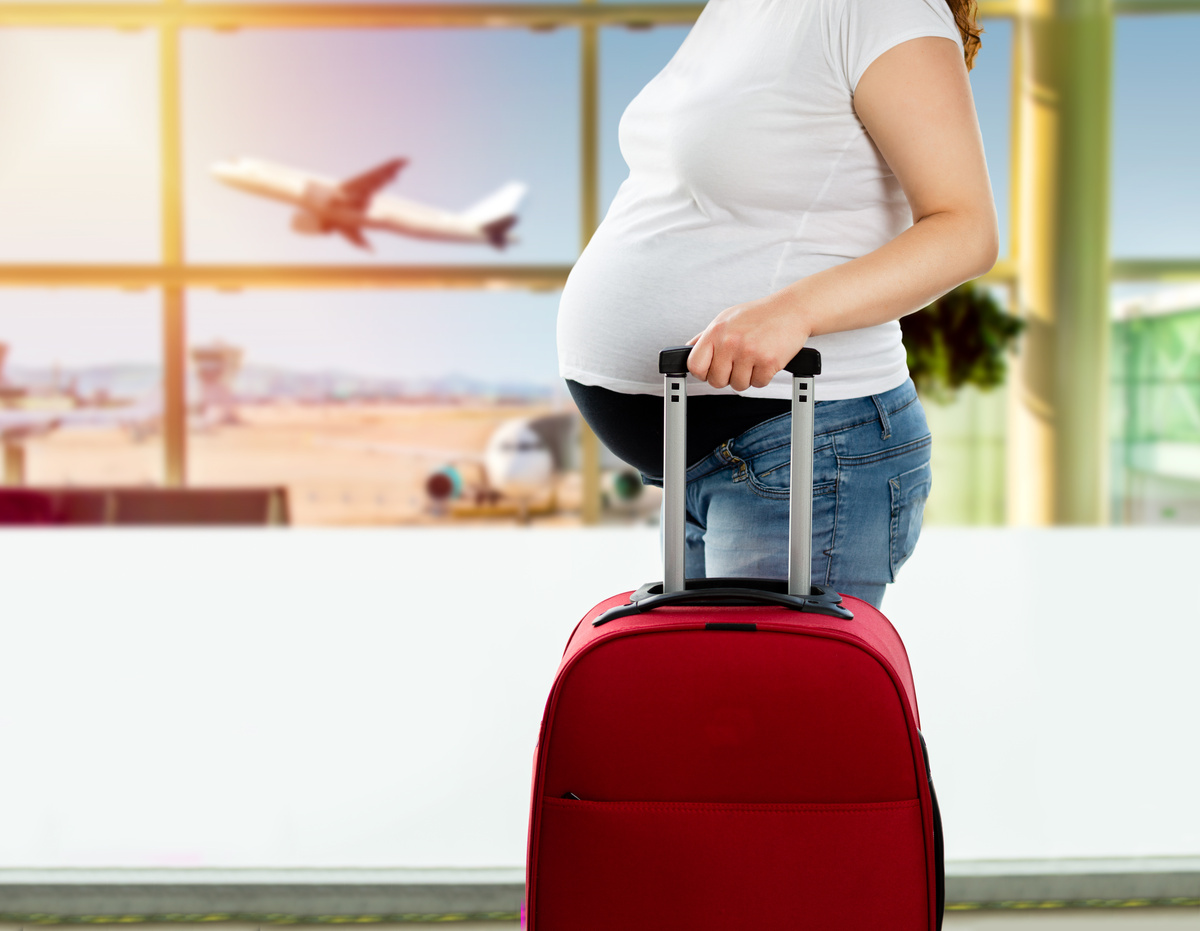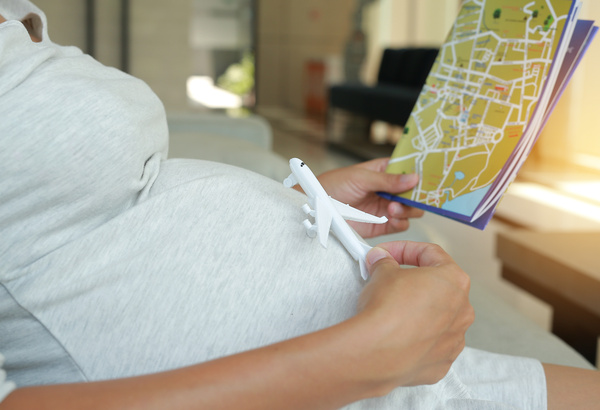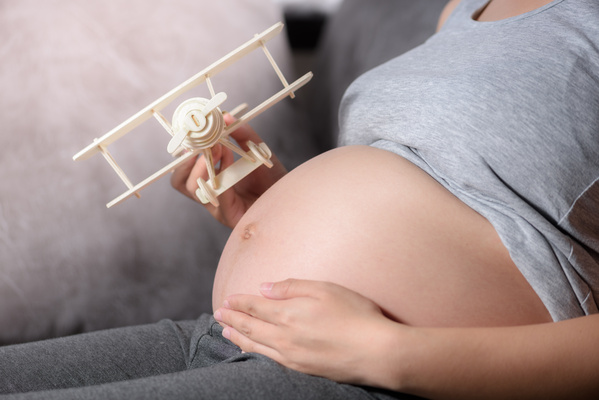Flying pregnant: the checklist for safe travel 11/16/2022

You’ve just found out you’re pregnant and you’re wondering if you can still fly? First, second or third trimester: at what stage of pregnancy is it best to fly? What precautions should you take and what tips should you know before you and your rounded belly step onto the tarmac? Without further ado, find out our practical advice for planning your next flight with peace of mind.
At which stage of pregnancy is it preferable to fly?
Although there is no hard and fast rule, health professionals generally advise that flying is best during the second trimester.
There are several reasons for this: travelling during the first 12 weeks of pregnancy can be restrictive, due to the nausea, vomiting and fatigue that pregnant women can experience at this stage of their pregnancy. Statistically, the risk of miscarriage is also higher in the first 3 months, which may discourage mothers-to-be from flying.

After the 28th week, you will be asked for a letter from your doctor
In addition, travelling in the last months of pregnancy can be tiring and uncomfortable. For this reason, many women find that the best time to travel or take a holiday is in the middle of pregnancy, between the fourth and sixth month.
Flying is ideally safe for you or your baby, but discuss any health problems or complications related to your pregnancy with your midwife or doctor before booking your flight.
The risk of childbirth is naturally higher after 37 weeks (about 32 weeks if you are carrying twins), and some airlines prefer not to allow pregnant women to fly when their pregnancy is nearing its end.
After the 28th week of pregnancy, some airlines require a letter from your doctor or midwife confirming your due date and stating that there is no risk of complications.

Buvez et bougez régulièrement
Our tips for travelling with your future baby
During the journey, fasten your seat belt under your abdomen.
Long distance travel (more than 4 hours) carries a small risk of blood clots (deep vein thrombosis – DVT). If you fly, drink plenty of water and move around regularly – about every 30 minutes. You can buy a pair of graduated compression or support stockings from a pharmacy to help reduce swelling in your legs.
Avoid carbonated food and drink before the flight. Trapped gases expand at altitude, which can cause discomfort. Broccoli and fizzy drinks are examples.
Radiation exposure associated with high-altitude air travel does not appear to be a problem for most pregnant women who fly. However, pilots, flight attendants and other frequent flyers may be exposed to a level of cosmic radiation that raises questions during pregnancy. If you must fly frequently during your pregnancy, discuss this with your doctor. He or she may recommend that you limit your total flying time during pregnancy.
The checklist for flying while pregnant!
1. Anti-nausea treatment
The unfortunate fact is that women who are prone to motion sickness are more likely to suffer from morning sickness when they are pregnant. If you’re concerned, you should definitely bring your ginger tea, prescription anti-nausea medication or motion sickness strips – anything that works for you on the ground will work in the air.
2. Comfortable shoes
Make sure you wear flat shoes on the plane. For example, choose easy-to-fit, comfortable flats or trainers to move around in during the flight – something you should definitely do to keep the blood flowing.
3. Support stockings
In order to promote good blood circulation in your lower legs, we strongly recommend that you choose a pair of compression socks. Wear these socks on board and you will maintain good circulation, preventing varicose veins and the possible formation of blood clots. Choose a pair that fits well but is not restrictive.
4. Pillow
The choice of pillow depends on you. If you suffer from back pain, choose a lumbar support pillow, such as the kind you slide over an office chair. Others may prefer a neck support pillow or an anatomical pillow, which you can crush in all directions until you feel comfortable.
5. Panty liners and a spare pair of panties
When you are pregnant, you are more prone to urges and possible unwanted discharges. An extra pair of underwear and a good supply of panty liners can make you feel more comfortable once you’re on board.
6. Reflux medications
If you are prone to gastrointestinal problems, you are more likely to suffer from them when travelling. So remember to take your usual anti-reflux medication on board.
7. Confortable clothes
On the plane, even more than usual, choose comfortable clothes: soft leggings, cotton tank tops, long-sleeved cotton t-shirts, soft sweaters, wraparound shawls. Take your most cocooning clothes with you to make you more comfortable on board.
You are pregnant and are about to travel with MK Partnair? Contact our teams to let us know your needs and expectations (mobility assistance at the airport, specific meal on board, specific seat, …). Before, during and after your flight, our teams will make your trip a serene and relaxing experience.









